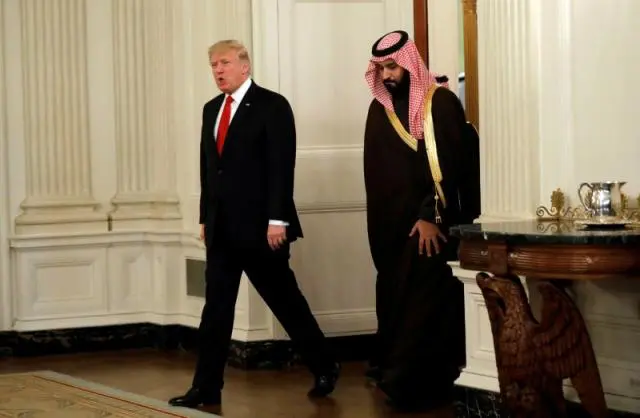In an interview with Reuters, Trump confirmed his administration was in talks about possible visits to Saudi Arabia and Israel in the second half of May. He is due to make his first trip abroad as president for a May 25 NATO summit in Brussels and could add other stops.
“Frankly, Saudi Arabia has not treated us fairly, because we are losing a tremendous amount of money in defending Saudi Arabia,” he said.
Trump’s criticism of Riyadh was a return to his 2016 election campaign rhetoric when he accused the kingdom of not pulling its weight in paying for the U.S. security umbrella.
“Nobody’s going to mess with Saudi Arabia because we’re watching them,” Trump told a campaign rally in Wisconsin a year ago. “They’re not paying us a fair price. We’re losing our shirt.”
The United States is the main supplier for most Saudi military needs, from F-15 fighters to control and command systems worth tens of billions of dollars in recent years, while American contractors win major energy deals.
The world’s top oil exporter and its biggest consumer have enjoyed close economic ties for decades, with U.S. firms building much of the infrastructure of the modern Saudi state after its oil boom in the 1970s.
But Foreign Minister Adel al-Jubeir rejected similar comments from Trump during his election campaign, telling CNN during a visit to Washington last July that the Islamic kingdom “carries its own weight” as an ally.
Saudi Arabia’s powerful deputy crown prince Mohammed bin Salman met with Trump last month in a meeting that was hailed by a senior Saudi adviser as a “historical turning point” in relations. The talks appeared to signal a meeting of minds on many issues, including their shared view that Iran posed a regional security threat.
Riyadh and other Gulf allies see in Trump a strong president who will shore up Washington’s role as their main strategic partner and help contain Riyadh’s adversary Iran in a region central to U.S. security and energy interests, regional analysts said.






Leave a Reply